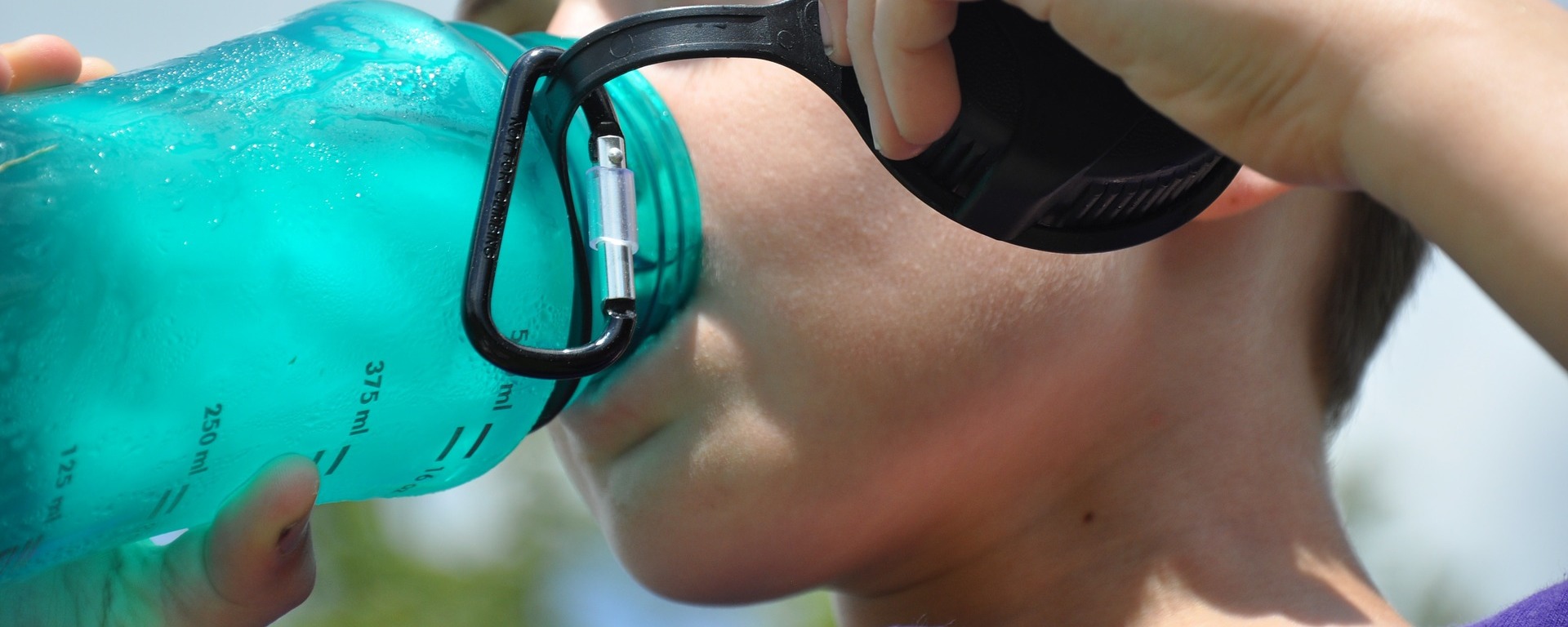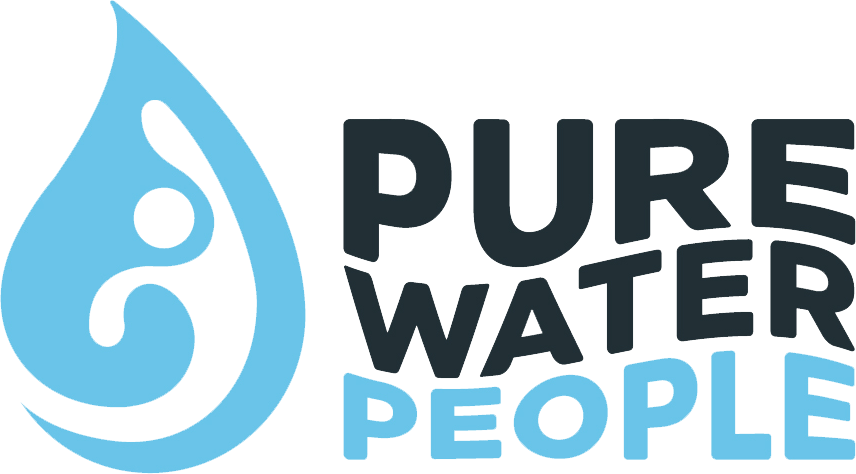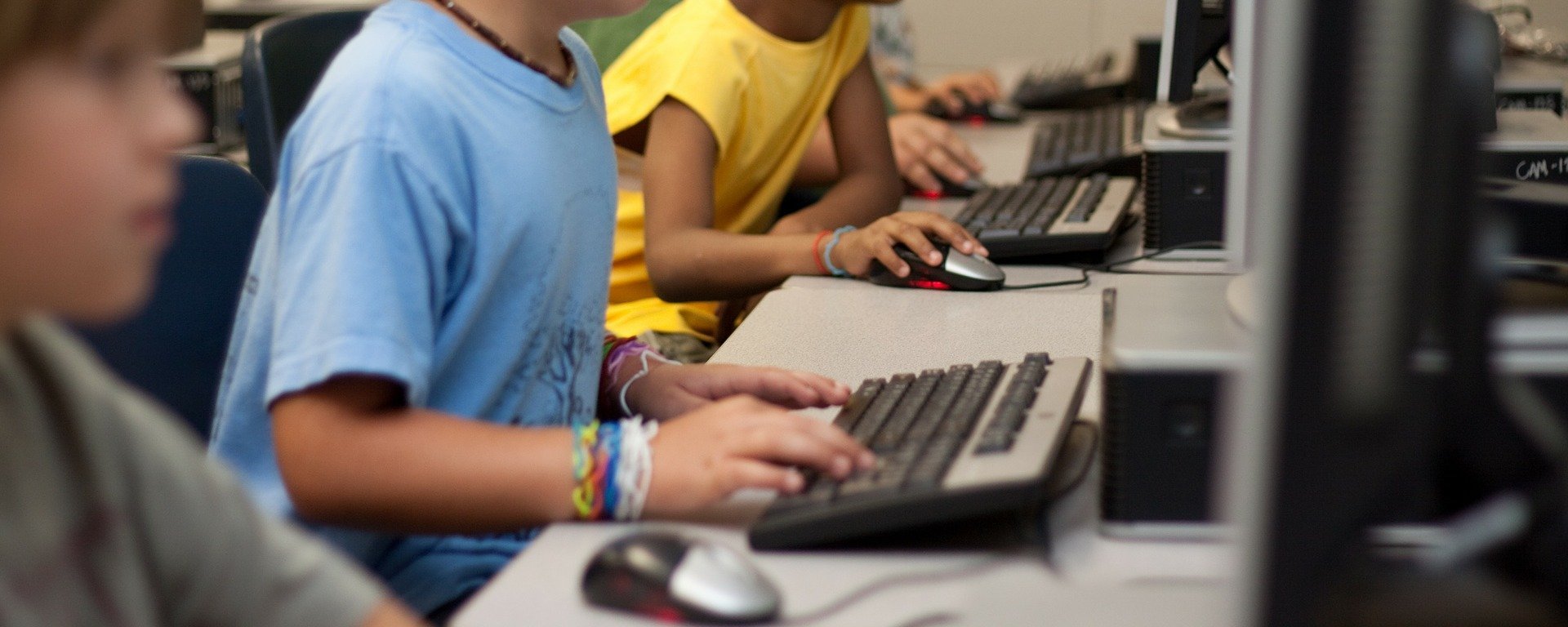Staying hydrated in the classroom - Why is it so important?
Posted on 29th March 2021 at 14:41
Now that the kids are back to school, we know that a lot of you parents out there will be breathing a sigh of relief. We get it – it's not like we don’t like having them around, far from it, but we could do with some peace and quiet (especially for those of us who are working from home right now). They’ll also be around their friends and they will be learning in actual lessons, not just from a live video feed on a screen (it’s ironic – we try to limit their screen time, but for the last few months we’ve been desperately encouraging them to stay on their laptops and tablets so that they don’t miss their lessons!).
A bit more independence and social interaction should do them good, but there is a bit of a drawback to this – without us there to look after them, they can slip into bad habits and don’t always looks after themselves as well as they could.

Staying hydrated
A good example of this, that’s especially close to our heart, is keeping themselves adequately hydrated. This isn’t something children are all that good at keeping on top of, and hasn’t been treated as enough of a priority. It is getting better, with water bottles being allowed in the classroom nowadays, but the importance of drinking enough in school is something that needs more emphasis!
We all remember what it was like – even on a hot day, we’ve all been denied permission to go and get a drink of water in the classroom, a prospect which probably involved a bacteria-ridden, shared water fountain out in the corridor. This seems quite mad now; not only because, in the current climate, sharing a water fountain between hundreds of people does make the mind recoil in horror, but also that something as fundamentally important as hydration was to be denied by someone in a position of authority? What were they thinking?
When you consider that the human body is around 60% water (which can vary and be significantly higher for children) and the brain and our blood is 80% and 50% respectively, it’s no exaggeration to say that it is vital to drink enough water. And drinking water only in response to thirst isn’t enough to keep you adequately hydrated, so it’s important that we understand this and make sure our children appreciate the importance of drinking enough water.

Hydration and Learning
Hydration levels play a vital role in your overall well-being and health. This encompasses a lot of different things, including cognitive performance and overall mood. Cognitive functions such as memory, learning and attention span, as well as mood states such as happiness, calmness and fatigue, can all be impaired by dehydration. Recent studies into the effects of dehydration and water intake on the various facets of cognition, do demonstrate that dehydration impairs these important cognitive functions. We could really use a lot more research about all of this - for example, a lot of the research concerns dehydration of more than 2% body mass loss, with cases of mild hydration (equal to or less than 2% body mass loss) only really being explored in the last decade. But the information we have access to so far, really paints a picture about dehydration and its effects.
For example, one particular study into the “effects of drinking supplementary water at school on cognitive performance in children” (Fadda et al, 2012) did demonstrate that an increase in water intake (a daily increase of 1.0L was measured, with the mean increase actually being 625ml) did have benefits, especially when it came to short term memory. It also displayed a worrying statistic – 84% of the children were in a state of “mild, voluntary dehydration” at the start of the day. This study focused on children between the ages of 9 and 11 in a hot climate (South Italy, Sardinia), but this insufficient fluid intake has also been reported countries with a colder climate, such as Germany and the United Kingdom. It’s clear to see how such studies are very beneficial, and how we need more of these studies to take place! Larger population samples, differing climates – just imagine the benefits of a large scale, meta-analysis of studies taking place in different climates and cultures. This would not only increase our understanding of the water drinking habits of children, but also how levels of hydration affect cognitive performance, mood and overall wellbeing! It’s important to state that, for obvious ethical reasons, these studies aren’t putting children at risk by introducing a state of dehydration, but rather measuring water drinking habits and comparing groups with increased water intake with those who are going about their day as normal.
It also seems that a person’s overall mood is also significantly impacted by dehydration. According a 2014 study, feelings such as calmness, happiness and confusion were all linked to water intake. This was achieved by comparing a group of habitual water drinkers, who drank more than 2L/day and a group of people who didn’t normally drink a lot of water (less than 1.2 a day). After 2 days of their normal water consumption, the groups were then measured for three days by decreasing the water intake in the high-drinkers group and increasing the water intake of the low-drinkers group. The group that had lowered their water intake experience a decrease in calmness and positive emotions, whilst the group that had upped their water intake for the three days, noticed a decrease in confusion. This is interesting stuff – hydration seems to be so important to the way we function and regulate our mood, but just as with the other studies mentioned, there needs to be more research into this...it’s important, after all!
Hydration could also have an important relationship with fatigue. Simply put, this is largely to do with blood pressure. When we’re dehydrated, it lowers our blood volume, which causes blood pressure to drop, meaning the heart has to work harder to supply it to our organs - with your heart having to work harder to pump oxygen and nutrients around the body. It would be ideal for more research into the extent to which this affects fatigue.

Lessons to be Learned
There are a couple of especially important things to take away from this.
Firstly, the kids need to make sure they’re drinking enough water! And we can't expect them, especially when they’re younger, to be self-starting and independent with these things. It comes down to education and needs to be reinforced in schools.
Maybe the schools and teachers could give the whole thing a nudge? Maybe a lesson here or there on the importance of hydration? Also, they could make sure that the kids have water bottles and get enough water intake during the day when they're in school.
Secondly, there’s a lot of scientific support for the things that should be obvious to us – when you’re dehydrated, it’s going to affect your cognitive performance and mood! And that’s not even going into the well-known link between dehydration and headaches! For children spending some six hours or so in classrooms, five days a week, staying adequately hydrated would make a crucial difference; and there's no better way to do this than to drink the best quality water possible (which is where we come in). Drinking water that has been purified of the chemicals, microplastics and other nasties, then remineralised to make it as healthy as possible, is the best way to stay hydrated.
Also, don’t forget about yourself! There are enough adults out there who just don’t drink enough water. When it comes to hydration, plain water isn’t the only drink that counts, but it’s good to be aware of what beverages are best for staying adequately hydrated (we all know by now to avoid overindulging in drinks that are high in sugar and have an ingredients list as long as War and Peace).
Stay safe out there, stay healthy and of course...don't forget to drink enough water!
Share this post:





